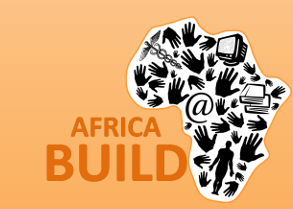New ICT platform for health research and education in Africa
The European Commission has launched a project to improve health research and education in Africa by setting up excellence centres supported by advanced information and communications technologies (ICT). One of its foremost goals is to build networks of researchers and synergies with other cooperative health projects in Africa (e.g., led by Europe and the United States).
Africa Build project started in August 2011 and is scheduled for completion in 2014. The project, funded by the European Commission's HEALTH area, is led by the Universidad Politécnica de Madrid's Biomedical Informatics Group (GIB), based in the Facultad de Informática and directed by Prof. Victor Maojo.
The ultimate aim of this project is to set up sustainable African networks of health researchers, educators and workers in order to improve healthcare and research across the African continent mediated by ICT.
 ICT will provide support for building an open and collaborative platform, designed to develop and share new methods of education, training and knowledge exchange in professional and social networks and virtual communities of African and European researchers.
ICT will provide support for building an open and collaborative platform, designed to develop and share new methods of education, training and knowledge exchange in professional and social networks and virtual communities of African and European researchers.
Other Africa Build partners are the Universities of Geneva, Ghana, Bamako (Mali) and Yaounde I (Cameroon), the World Health Organization (Department of Reproductive Health), the Egyptian Ministry of Information and Communications Technologies and the Belgium Institute of Tropical Medicine in Antwerp.
Specific goals
The project has several specific goals:
1. Develop a broad spectrum of e-learning courses on health, medical informatics and ICT (medical informatics and Web technologies).
2. Set up centres of excellence, with European assistance, in several African countries to employ specialized workers and purchase ICT equipment. The European Commission will provide support for these African Centres of Excellence to hire experienced native personnel (for instance, African scholars who could have completed their training overseas and would like to return to their home countries). These professionals should contribute to the future sustainability and expansion of such initiatives.
3. Encourage the use of advanced ICT (cloud and mobile computing, etc.) and medical informatics tools to improve health strategies in Africa. This way, Africa will be able to gain access to supercomputers and large software systems to store information and access and use open source software.
4. Run pilot projects using advanced ICT to deal with key health problems in Africa, such as AIDS or reproductive health.
5. Set up a volunteer network that can participate in medical informatics R&D projects for Africa and/or teach distance learning courses in partnership with African aid projects.
Preliminary experiments
To launch this project, a series of ambitious cloud computing experiments have been run on several types of applications -clinical database integration, supercomputing for bioinformatics, access to open source software tools or medical image processing- by Spain (UPM), Egypt and Burundi.
Using simple laptops and a mobile telephony connection, Burundi physicians have, with the help of UPM students, already managed to access databases or perform complex bioinformatics calculations on MAGERIT, the UPM's supercomputer, from a region (Burundi) with little ICT infrastructure.
Over the last ten years, Europe, the United States and other countries (like China) have launched several initiatives to assist Africa with ICT. AFRICA BUILD places the stress on healthcare and related issues as part of ICT cooperation.
Source: FIUPM

